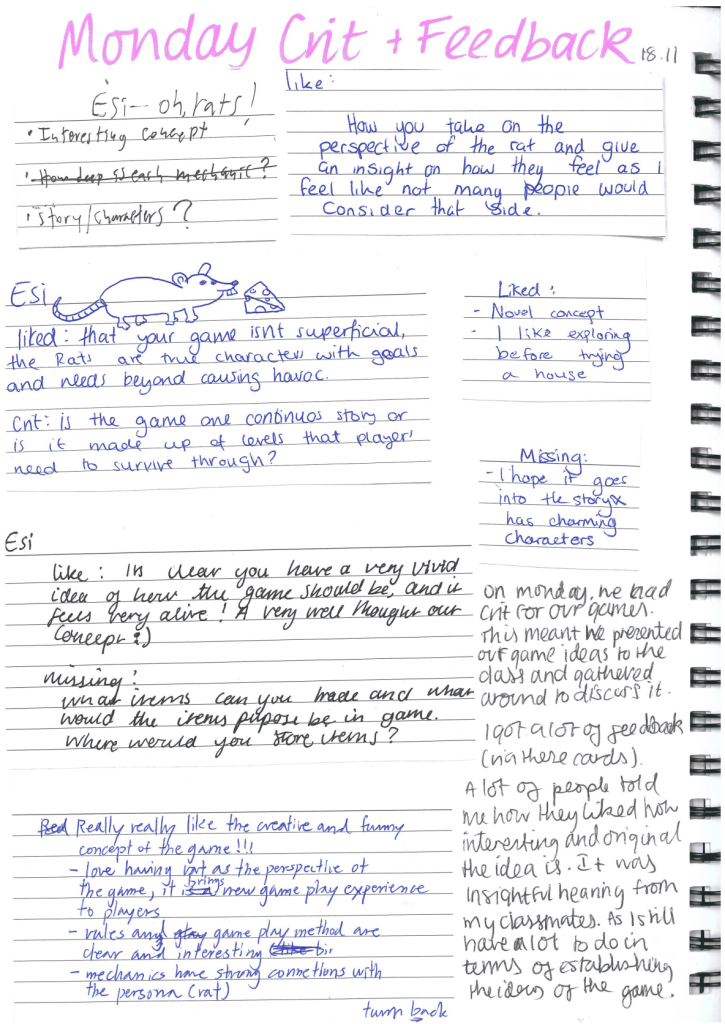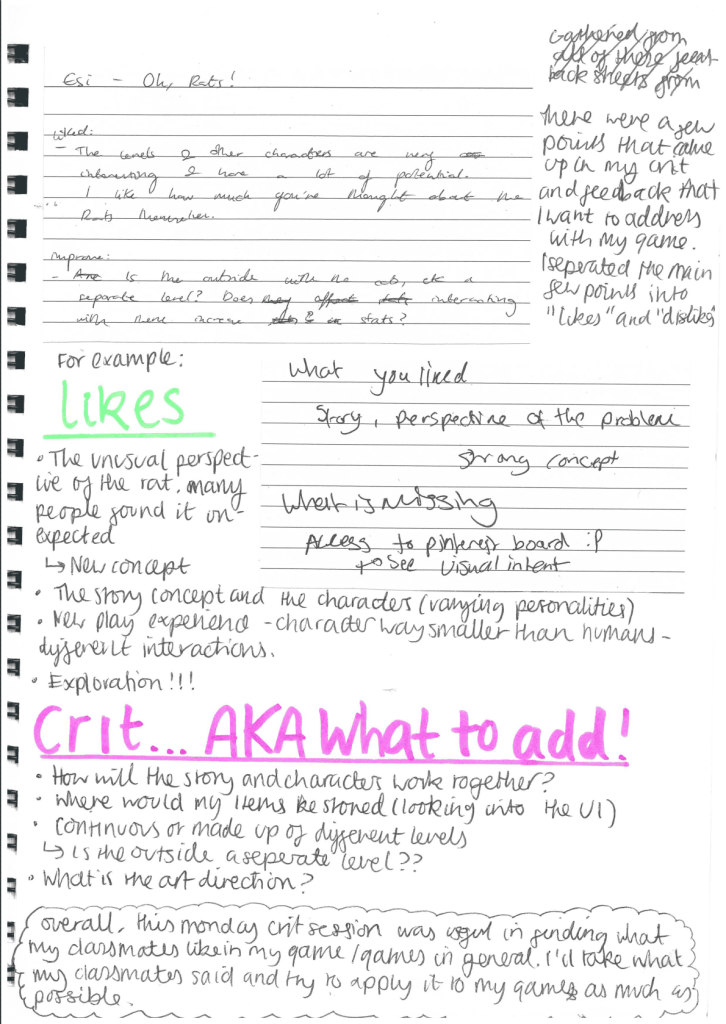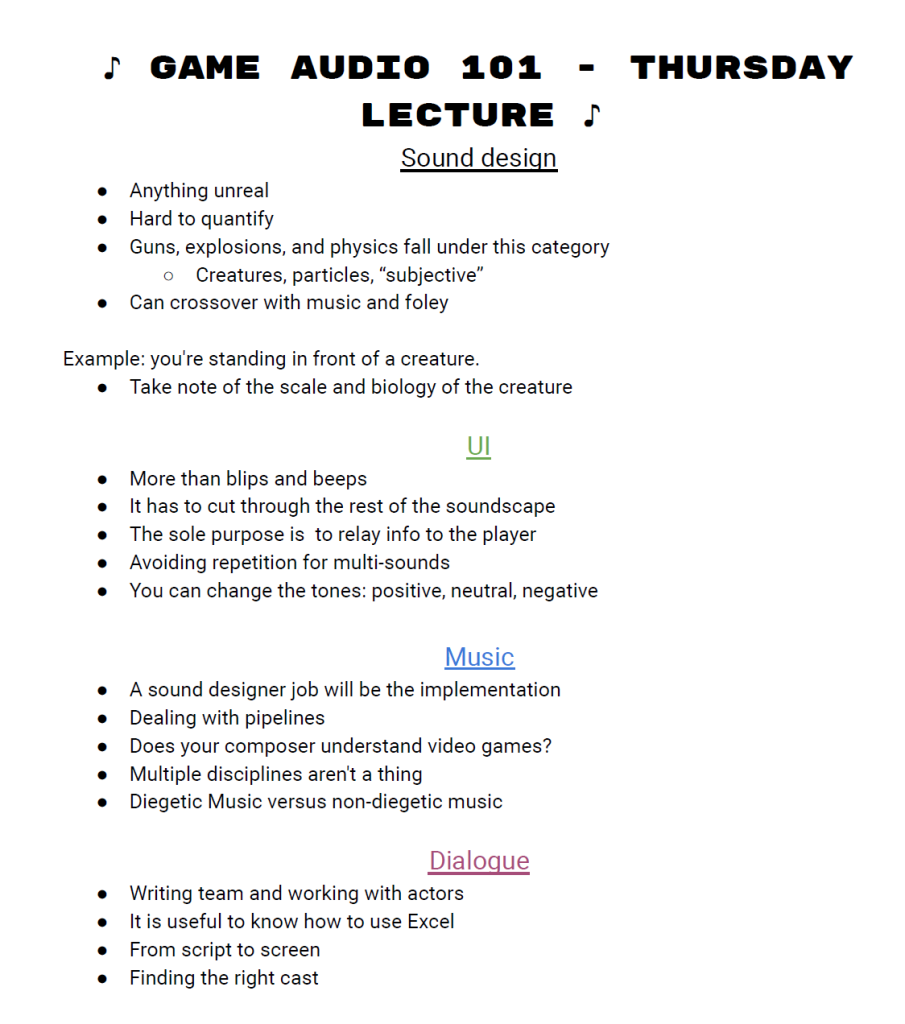Crit / Peer Feedback
On Monday, we did a (Constructive) Criticism Feedback session. Crit is really important to find out what people (and potential players) want or expect from your game, so this session could also be seen as”player” feedback.
I got a lot of useful feedback from my peers, who told me what they liked about my game and what I could do better. Some of the points included:
Likes
- Interesting/Novel/New Concept
- Perspective of the Rat/Rat POV
- That it’s a “simulator” with a story
Crit
- How will the story and characters work together?
- Items?
- Levels?
This session was really interesting for me, as I got to see what my peers thought of my game idea. It went well, and my idea was well received. I’ll take this into consideration!


Audio 101 Lecture (Thursday)
We had a guest lecture from a sound designer, Jessica Saunders, who has worked on games like Batman Arkham Nights. She had a lot of useful (and very honest) information about the Game Audio sector and the game industry in general.
Other than the notes I’ve written below, there were a few tips she gave us that I think all future game designers need to hear:
“When applying for a games job, only choose one discipline.”
While this is a seemingly obvious sentence, a lot of us aspiring game designers fall into the trap of calling ourselves “composers”, “artists”, “designers” etc. when we are specifically tailored to only one of these disciplines. Not to say that if you are a composer, you can’t do art and vice versa, but in a professional sense, it is important to only choose one.
As a firm believer in a “Jack of all trades, master of none” and wanting to be a 3D generalist, this perspective was definitely different to the one I’ve had for many years regarding games. Even the guest lecturer did not call herself a Game Musician despite making small pieces that actually got into a few prominent AAA games, because she states that she explicitly specialises in audio.
So one other thing I learnt from this lecture was to choose your strengths (Art, Design, Audio) and hone those skills. Dabble in other disciplines as well but when choosing a professional discipline for studios to hire you, choose your strongest one.
I learnt from her lecture that sound and audio in games are much more important than people make them to be. Without sound, the player isn’t given the idea that they’re really in the game world. Your goal as a sound designer is to immerse the player. We did a sound exercise with Jessica on one of her games set in Victorian England. The area was near docks where ships and boatworkers would frequent. She asked us what we heard. The creaking of boats, the distant chattering of people, the rumble of industrial machinery. All of these are so subtle but important for sound designers to incorporate into games.

